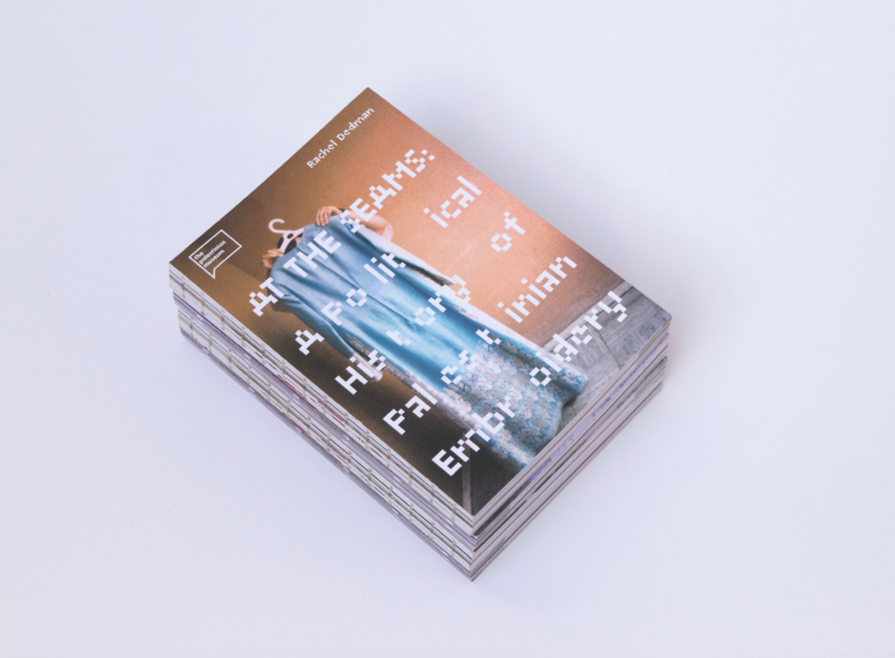At the Seams: A Political History of Palestinian Embroidery
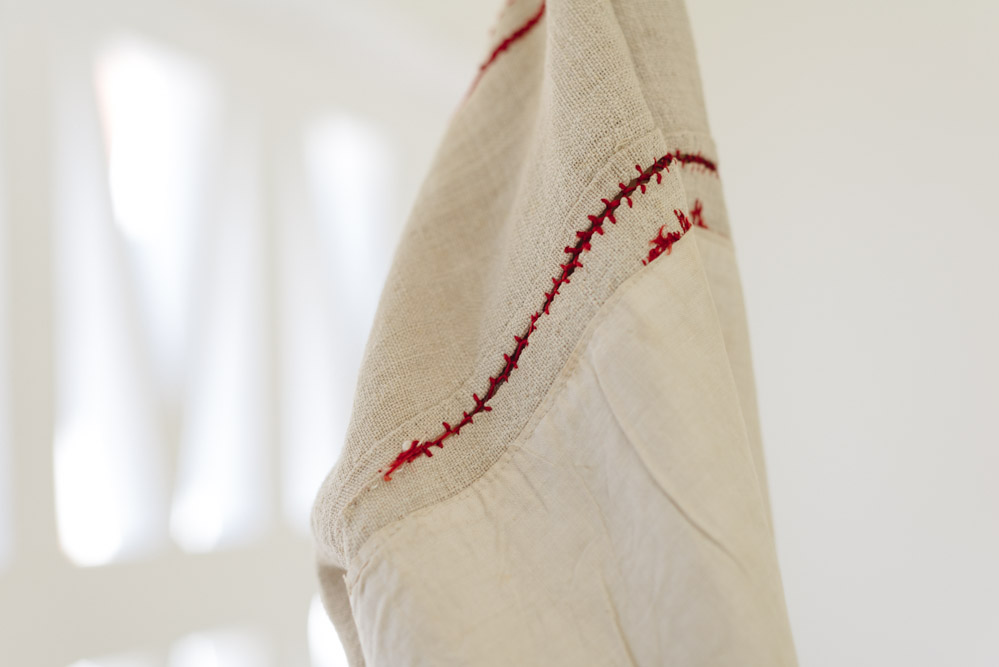
25 May—30 July 2016
Commissioned by the Palestinian Museum, Birzeit, Palestine
Exhibited at Dar el-Nimer, Beirut, Lebanon
Curated by Rachel Dedman
Commissioned by the Palestinian Museum, Birzeit, Palestine
Exhibited at Dar el-Nimer, Beirut, Lebanon
Curated by Rachel Dedman
Embroidery is extraordinary material – visual, tactile, intimate, labourious, political. Challenging associations with the antiquated, the traditional and the marginal, At the Seams broke new ground in extending the history of Palestinian embroidery into the late twentieth and early twenty-first century. Beyond its historical importance before 1948, embroidery has undergone rich and dynamic transformations in the decades since – constituting forms of heritage-driven nationalism, militant resistance, nascent economic power and challenge to the infrastructural and cultural violence of the Israeli state.
Key elements of my research concerned the homogenisation of the thobe both pre- and post-1948; embroidery and the fashioning of a modern Palestinian woman in 1960s Beirut; the use of embroidery as a touchstone for a historical Palestine by liberation artists; embroidery as a form of resistance; the Intifada Dress's rendering of women's bodies as sites of active political agency; the history of NGOs and circulation of embroidery in a global marketplace; and the conceptual contemporary forms of embroidery, advanced by young Palestinian artists and designers today.
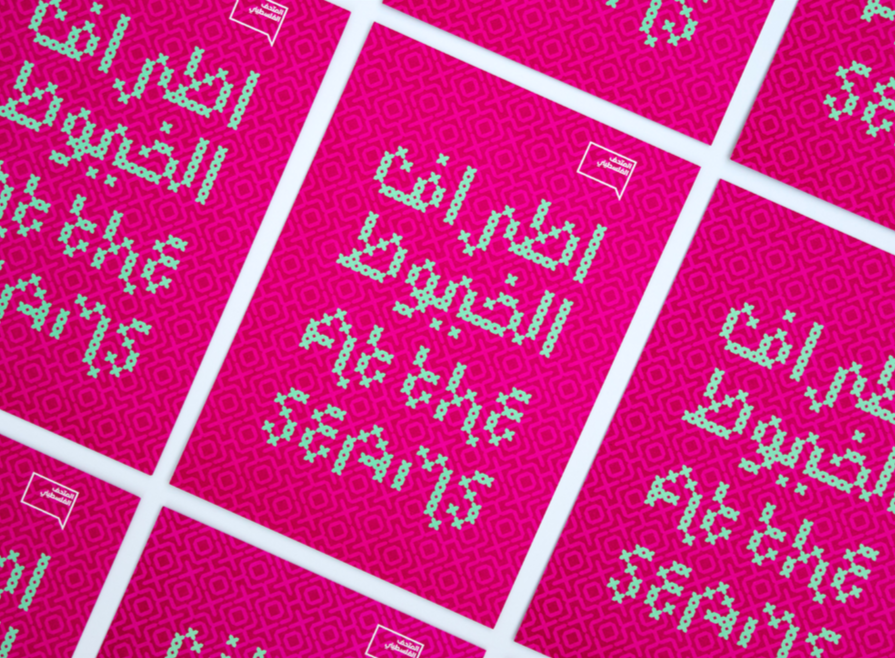
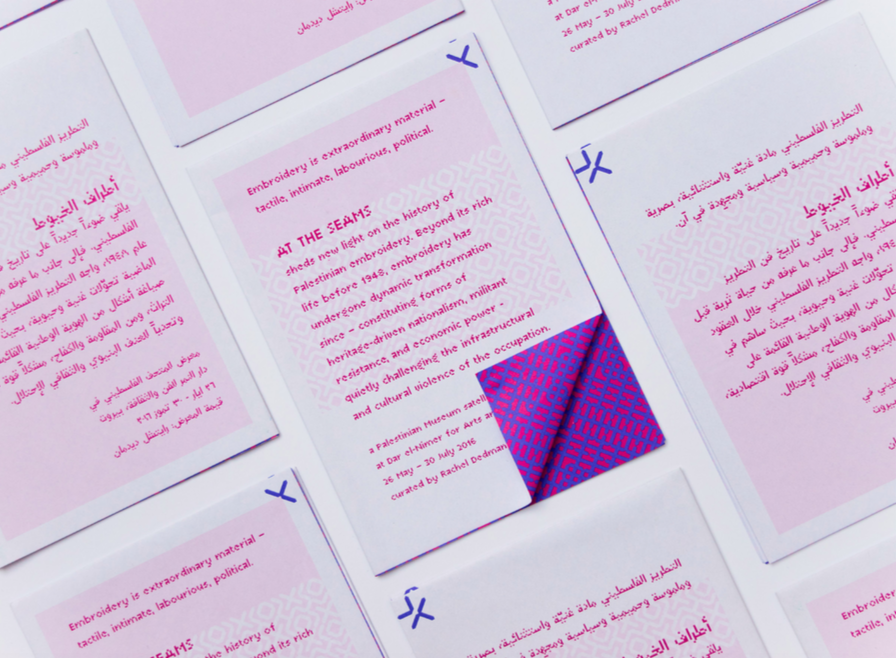
My research unfolded from the understanding that, as a form of material history, textiles sensitively reflect the changes in the social and political landscape in which they are produced. Taking material that is little-documented and rarely-exhibited, the exhibition placed historic Palestinian dresses from the nineteenth and early twentieth centuries in conversation with photography, painting, archival material and contemporary design. Newly-commissioned film from artist Maeve Brennan gave voice to the women across Palestine, Lebanon and Jordan who continue to embroider today, and whose memories, experiences and opinions are rarely heard within this discourse. In mapping pre-1948 material alongside Palestinian textiles' modern and contemporary forms over the last 60 years, the exhibition addresses important questions pertaining to Palestine's position in the eyes of the world, and the performance of Palestine on the body.
The curatorial and art historical process was driven by extensive fieldwork and archival research. The knowledge and collections of Widad Kawar and Malak al-Husseini Abdulrahim form the backbone of the exhibition's content. At the Seams was accompanied by a research-driven publication and dynamic educational and public program in Beirut, Lebanon.

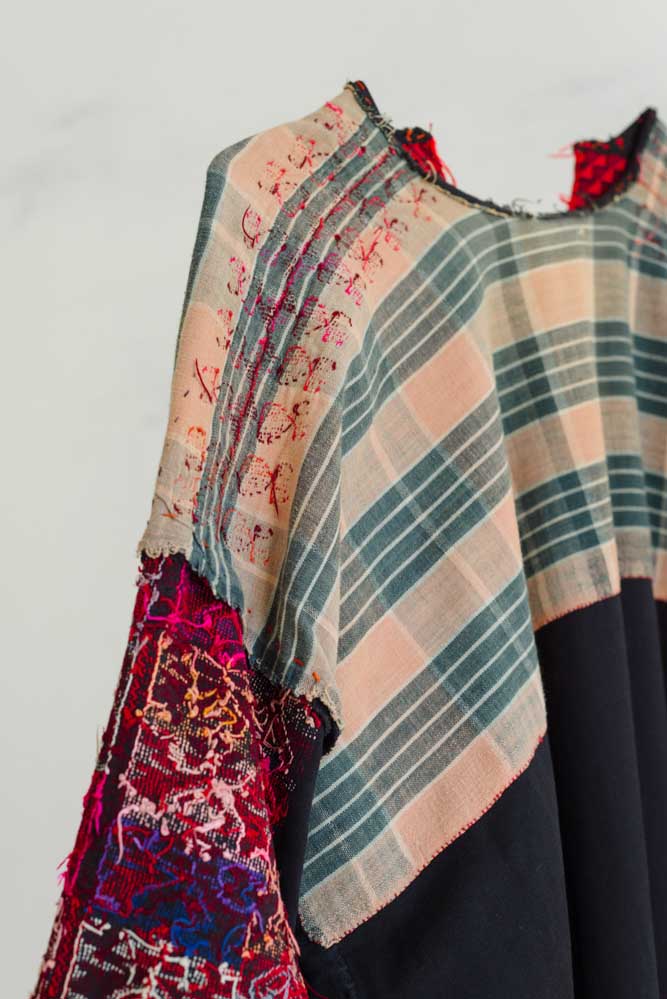
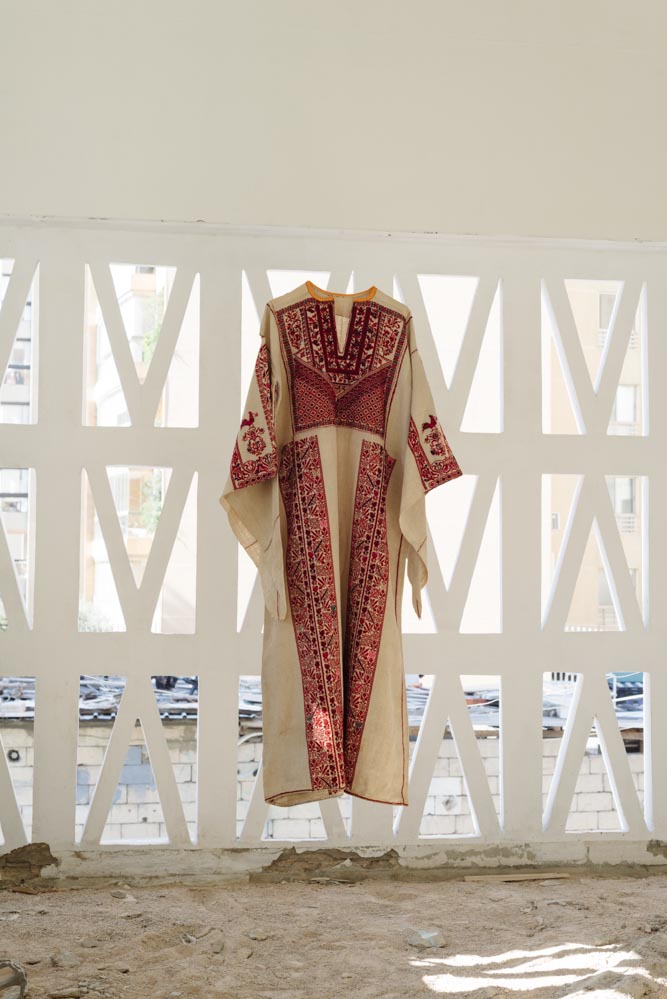
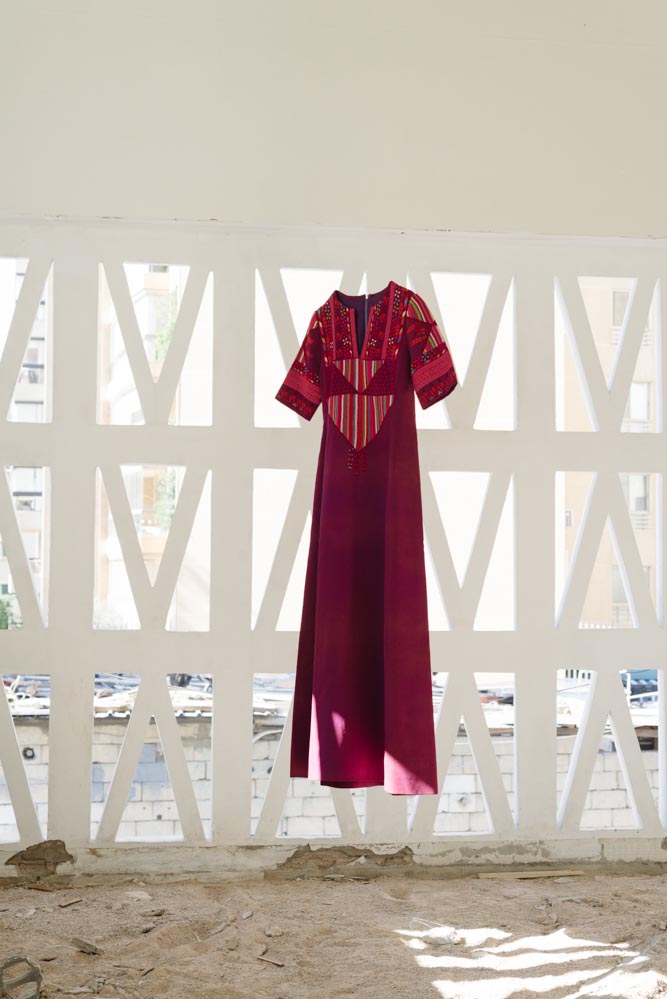
Since 2016, the exhibition has taken expanded form as Labour of Love at the Palestinian Museum’s main site in 2018, and is coming to Kettle’s Yard and the Whitworth Gallery in the UK as Material Power in 2021.
